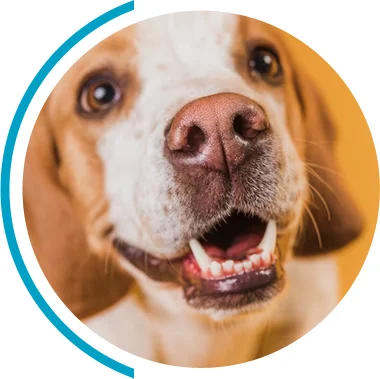Separation anxiety in dogs is a behavioral condition that manifests when a dog becomes overly stressed when left alone or separated from their guardian. It can lead to a range of issues, not only for the pet but also for the owner. Understanding this condition is essential for providing proper care and training for your dog.
Dogs are social animals, and many thrive on companionship. When they experience the fear of being left alone, it can lead to profound emotional distress. Recognizing and addressing separation anxiety effectively can make a substantial difference in your dog’s quality of life.
Identifying the symptoms of separation anxiety is crucial for early intervention. Common signs include excessive barking or whining when left alone, destructive behavior, such as chewing furniture, and attempts to escape by digging at doors or windows. Other symptoms might include urinating or defecating indoors, pacing, and a heightened state of agitation when the owner is preparing to leave.
It’s important to note that these symptoms may be misinterpreted as general disobedience or poor training. Understanding the roots of this behavior will help in addressing the underlying anxiety rather than simply punishing the dog for their actions.
The causes of separation anxiety can vary significantly from one dog to another. Often, it stems from a traumatic experience, such as being abandoned or losing a companion. Additionally, dogs that are excessively attached to their owners are more prone to developing anxiety when those owners leave.
Changes in environment, such as moving to a new home or the introduction of a new family member, can also trigger anxiety in dogs. Understanding these triggers is essential for owners in Coarsegold aiming to help their dogs feel more secure in their environment.
Training is crucial for both the dog and the owner when dealing with separation anxiety. A structured training plan can help alleviate the symptoms and provide the dog with coping mechanisms to handle alone time better.
Moreover, trained dogs are usually more confident and less prone to anxiety-related behaviors. This not only improves the quality of life for the pet but also fosters a more harmonious living environment for families in Coarsegold.
Training your dog to cope with separation anxiety can yield numerous benefits. It can reduce behaviors that harm the dog or the household, such as excessive barking or destructive actions. Furthermore, a well-trained dog is more adaptable to changes in routine and environment.
Additionally, training enhances the bond between the owner and the dog. As the owner learns to identify triggers and implement positive strategies, trust is built, allowing for a healthier relationship. This partnership creates a sense of safety for the dog, which is essential for their emotional well-being.
Failing to address separation anxiety can lead to exacerbated behaviors and stress for both the dog and the owner. As the anxiety builds up, the dog’s destructive tendencies might escalate. In extreme cases, dogs may injure themselves while trying to escape confinement or may develop other behavioral issues.
Ignoring the signs can also affect the dog’s health. Chronic stress can lead to a weakened immune system, making the dog more susceptible to illnesses. Therefore, understanding and responding properly to separation anxiety is vital for a dog’s overall health.
Effective training techniques for separation anxiety often incorporate various behavioral strategies designed to modify the dog’s response to being left alone. These methods can significantly alleviate the symptoms of anxiety.
While different techniques might work better for different dogs, employing a combination can yield the best results. Each dog is unique, and adapting training methods to their specific needs enhances the likelihood of success.
Positive reinforcement training is one of the most effective methods for addressing separation anxiety. This technique involves rewarding the dog for calm behaviors, such as lying down quietly when you prepare to leave. By associating your departures with positive experiences, your dog can begin to feel more at ease.
The rewards can come in various forms, such as treats, praise, or playtime. The key is consistency—ensuring that the dog understands which behaviors are rewarded can foster a more relaxed demeanor when left alone.
Counter-conditioning and desensitization are complementary techniques that can help to reframe how a dog perceives being alone. Desensitization involves gradually increasing the duration of time the dog is left alone in a controlled manner without inducing stress. This gradual approach helps the dog become accustomed to their new routine.
Similarly, counter-conditioning aims to change the dog’s emotional response to being alone by pairing these moments with something positive, such as toys or treats. When used in conjunction, these techniques can be powerful tools in overcoming separation anxiety.
For many dog owners in Coarsegold, seeking the guidance of a professional trainer can be invaluable in managing separation anxiety. Professionals can provide expertise and tailored training plans that cater to individual dog needs, ensuring a more effective outcome.
Professional trainers can also assist in uncovering underlying issues that the owner may not fully recognize, providing a more comprehensive approach to the dog’s training and emotional health.
Determining when to seek professional help can be a critical factor in effectively addressing separation anxiety. If your dog exhibits severe symptoms, such as incessant barking or destructive behavior that poses a danger to themselves, reaching out to a trainer should be a priority.
Additionally, if your training efforts yield minimal results or your own knowledge of dog behavior is limited, a professional can help bridge the gap and implement strategies that you may not have considered.
Selecting the right trainer is essential for effective separation anxiety training. Look for trainers who specialize in behavioral issues and have a solid reputation within the Coarsegold community. Recommendations from local dog owners can also be a helpful resource.
Furthermore, it is beneficial to meet with potential trainers and discuss their methods, ensuring that they align with your training philosophy and your dog’s needs. Establishing a strong rapport with the trainer can also foster a more effective training environment for your dog.
After completing a training program, maintaining the progress achieved is vital for the long-term well-being of your dog. Dogs can easily revert to old habits if training is not reinforced consistently.
Owners should implement strategies learned during the training to create a supportive environment. This ongoing commitment ensures that the dog remains confident and less anxious over time.
Consistency is key when it comes to reinforcing good behaviors. By maintaining the same routines and techniques learned during training, you set clear expectations for your dog. This approach includes sticking to schedules around departures and arrivals, as well as maintaining similar practices that promote calmness.
Incorporating regular training sessions can also be beneficial. This keeps your dog engaged and continues to build on the foundation established during formal training.
Regularly monitoring your dog’s progress is essential for recognizing any changes in behavior. Keep track of how your dog responds when left alone and note any relapses in separation anxiety symptoms. This can help signal the need for further training or adjustments in your approach.
Engaging in regular check-ins with your professional trainer can also provide additional insight and resources, ensuring that you are on the right track. This collaboration can reinforce both behavior and the bond you share with your dog.
If you’re feeling overwhelmed by your dog’s separation anxiety, remember that you’re not alone. At The Grounded Hound Canine Coaching, we understand the challenges you face and are here to offer our expertise. With certifications from the Academy for Dog Trainers, Animal Behavior College, and specialized credentials in Separation Anxiety Training, our approach is grounded in Patience, Kindness, and Consistency. We’re dedicated to strengthening the bond between you and your canine companion through positive training methods. Don’t let separation anxiety disrupt your life any longer. Contact Us Today and take the first step towards a happier, more peaceful relationship with your dog.

